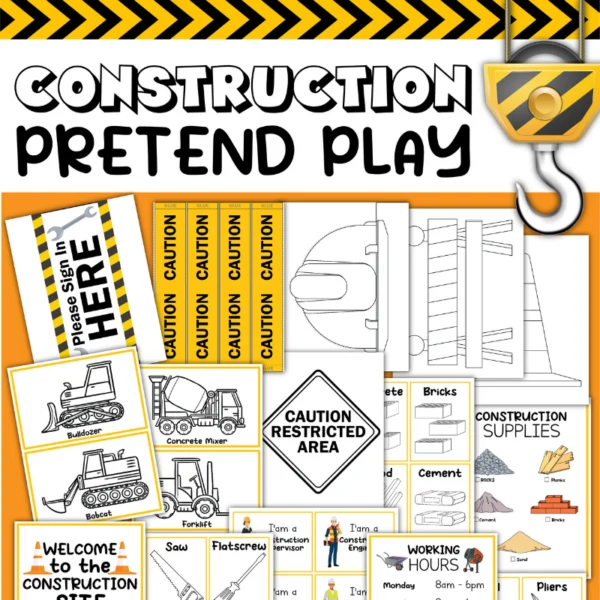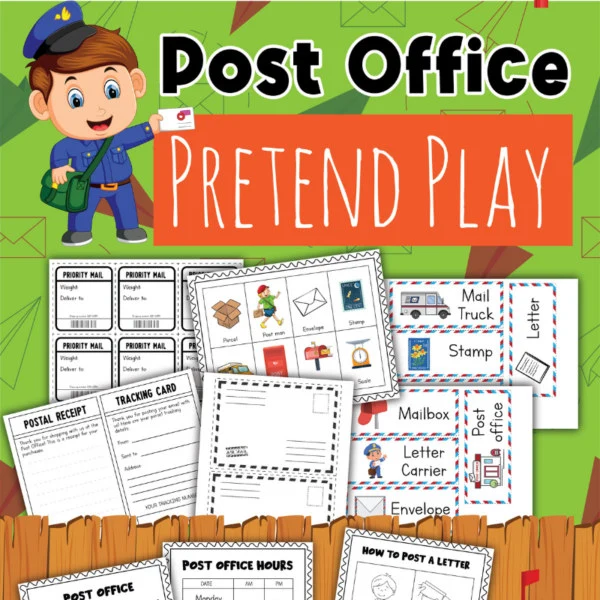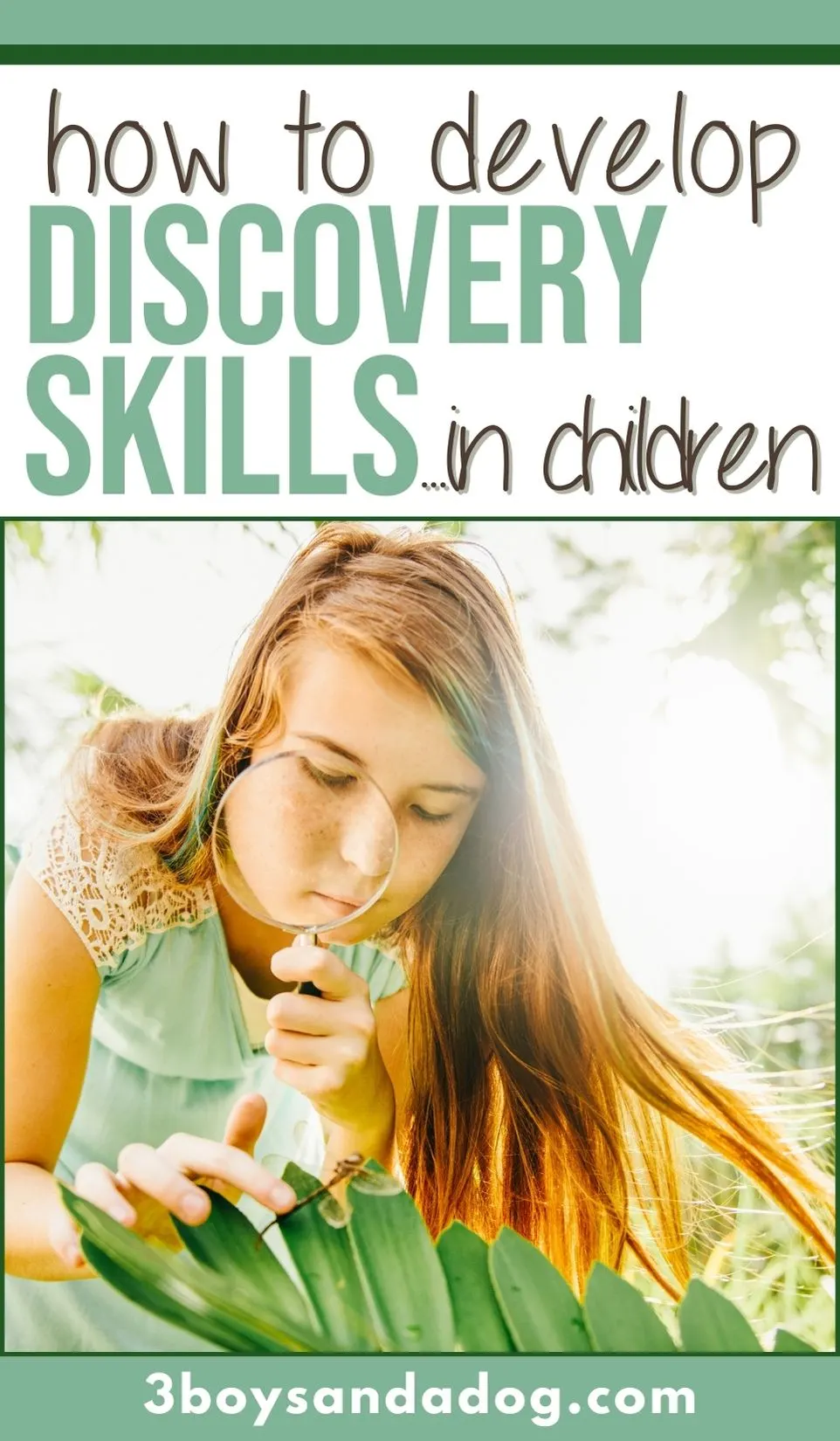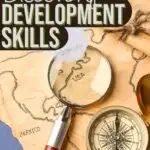One of the most exciting and rewarding aspects of parenting and teaching young children is experiencing the exciting moments when they discover something new.
Whether it’s the first time they see a caterpillar turn into a butterfly or the first time they realize they can read a book independently, these moments of discovery are magical.
As caregivers and educators, we have the incredible privilege and responsibility of fostering these moments and helping children develop their natural curiosity and discovery skills.

This blog post will explore tips, tricks, and tools for developing your child’s discovery skills.
Practical Implementation of Discovery Skills
Incorporating these strategies into everyday life can significantly impact your child’s capacity for discovery and learning.
From encouraging exploration and creativity to nurturing a love of learning, each approach broadens their horizons in a fun and engaging way.
By asking open-ended questions, providing a wide range of experiences, and making play a central part of learning, you are laying the foundation for a lifelong journey of curiosity and exploration.
Remember, the goal is to teach and inspire a deep-seated love for uncovering the new and the unknown.
- Encourage Exploration and Creativity — One of the most important things you can do to foster your child’s discovery skills is to give them lots of opportunities to explore their environment and get creative. Encourage them to experiment with blocks, play dough, or art supplies. You can also provide opportunities for them to explore nature, such as bringing them on nature walks or planting a garden. The more opportunities they have to explore and experiment, the more likely they will discover something new.
- Ask Open-Ended Questions—When discussing new experiences or concepts with your child, ask open-ended questions rather than leading questions with only one “right” answer. For example, instead of asking, “What color is this apple?” you could ask, “What do you notice about this apple?” or ” What do you think this apple might taste like?” This approach encourages your child to think more creatively and develops critical thinking skills.
- Provide a Wide Range of Experiences—Children are more likely to discover something new when exposed to a wide range of experiences. Try to offer your child opportunities to experience different activities and environments, such as visiting museums, attending concerts or shows, or participating in community events. This helps build their discovery skills, broaden their horizons, and develop social and emotional skills.
- Play Games that Encourage Discovery – There are many games and activities that you can play with your child that encourage them to think critically and discover something new. For example, a scavenger hunt can be a fun and engaging way to encourage your child to explore their environment and discover new things. You could also play memory or problem-solving games requiring your child to think creatively and systematically to find solutions.
- Nurture a Love of Learning – At the heart of discovery is a love of learning. As caregivers and educators, we can help children develop this love of learning by making it a fun and rewarding experience. Incorporate play and creativity into learning activities, and show enthusiasm for your child is interests. You can encourage your child to be a lifelong learner and discovery enthusiast by approaching learning positively and engagingly.
How to create a place for exploration & discovery:
Providing lots of interesting things for your child to play with, without structure or rules, can be a great way to encourage exploration and discovery.
You could set up a designated “exploration station” with various materials or simply give your child access to different toys and objects throughout the day. Allow them to touch, manipulate, and experiment with these items without specific instructions or goals.
You can also create opportunities for exploration and discovery in everyday activities.
For example, have your child help you cook dinner and let them experiment with different ingredients and spices. Walk around the neighborhood and encourage your child to observe and ask questions about their surroundings.
Ultimately, the key is to provide an environment that promotes curiosity, creativity, and critical thinking. Here are our suggestions for fostering discovery!
- Create a Safe Space for Exploration: Ensure your child has a safe area to explore, experiment, and play without unnecessary restrictions. Child-proofing your space can give your child the freedom to discover without constant worry about their safety.
- Designate Areas for Creativity: Set aside specific areas in your home where your child can engage in creative activities, such as a corner with art supplies, a reading nook, or an outdoor sandbox. Access to these resources encourages spontaneous exploration and innovation.
- Encourage Questions: Show that their questions are valued by listening attentively and responding with interest. If you don’t have all the answers, research them together. This approach demonstrates that seeking knowledge is a lifelong process and that curiosity should be embraced.
- Limit Screen Time: Balancing screen time with other activities can encourage your child to engage more deeply with the physical world. Encourage playtime outside, hands-on activities, and face-to-face interactions to develop their observational and social skills.
- Be a Role Model of Discovery: Children learn by example. Demonstrate your curiosity and passion for learning. Share your hobbies, read books, explore nature, or develop a new skill together. This strengthens your bond and shows them the joy and value of discovering new things.
By incorporating these practices into your daily life, you can build a nurturing environment that allows your child’s discovery skills to flourish.
Comparison of Discovery Skills with Other Childhood Developmental Skills
Discovery skills play a crucial role in childhood development, standing uniquely apart from other areas such as physical development, language skills, and social-emotional skills.
Where discovery skills emphasize curiosity, experimentation, and the pursuit of new knowledge, physical development focuses on mastering movement, coordination, and sensory abilities.
On the other hand, language skills center around communication—developing the ability to understand and use language effectively. Social-emotional skills involve understanding and managing emotions and establishing positive relationships and empathy towards others.
While each developmental area has its distinct focus, they often interconnect and support one another. For instance, the exploration involved in developing discovery skills can enhance physical coordination as children engage with different materials and environments.
Similarly, discussing discoveries can accelerate language development, while working on group experiments or explorations can bolster social-emotional skills through teamwork and shared excitement.
To foster a balanced development, caregivers can:
- Encourage Active Play. This combines physical development with discovery skills. Climbing, jumping, and playing sports improve physical health and offer opportunities to explore and learn about one’s abilities and the physical world.
- Incorporate Storytelling: Enhances both language and discovery skills. Reading and discussing diverse stories can spark curiosity and encourage children to explore similar subjects through play or research.
- Facilitate Group Activities: Promotes social-emotional skills alongside discovery skills. Group projects or exploration activities foster teamwork, empathy, and shared learning experiences.
- Model Lifelong Learning: Shows how discovery intersects with all aspects of development. By demonstrating a love for learning in various domains—picking up a new language, practicing a sport, or exploring science—caregivers can inspire children to view discovery as a holistic, enjoyable pursuit.
Learning Printables and Activities
These are excellent resources for kids! They’ll love being a part of the learning process from start to finish.



By understanding the differences and synergies among these developmental areas, caregivers can create a rich, balanced environment for children to grow in their capacity for discovery across all facets of their development.

Developing your child’s discovery skills takes time and effort, but it’s an incredibly rewarding journey. By encouraging exploration, asking open-ended questions, providing diverse experiences, playing discovery games, and nurturing a love of learning, you can help your child develop their natural curiosity and become a lifelong discovery explorer.
With patience, creativity, and enthusiasm, you can help your child unlock the amazing world of discovery and all its magic.

















